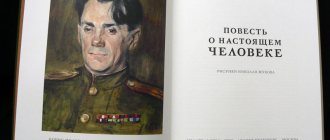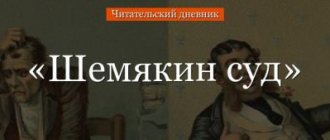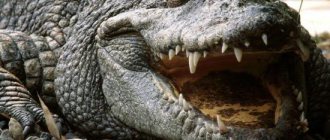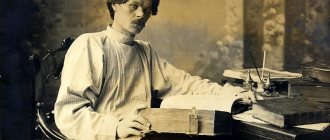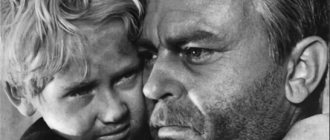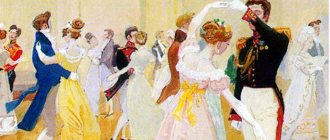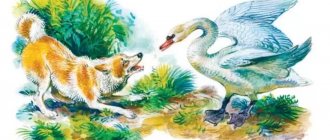basic information
Orwell completed his work on a utopia, which tells the story of a gradual and, according to the author, inevitable transition from ideas of universal equality to totalitarianism and harsh dictatorship, in 1944. The story first appeared in print after the end of World War II. Original title: Animal Farm: A Fairy Story. The work contains a satire on the Soviet Union; famous historical figures can be seen in some of the characters. Orwell's story "Animal Farm" is about the 1917 revolution and the events that took place in the first twenty years after the creation of the new state.
Already from the title it is clear that the main characters here are not people, but animals. However, some of them are endowed with cruelty, which is inherent only to humans. Before presenting a brief summary of Animal Farm, it is necessary to define the main term of this philosophical work - “bestialism”. This concept is a parody of communism. “Scotism” or “animalism” is a philosophical system according to which animals exist in complete independence from people.
About the product
Orwell's Animal Farm was written in 1944. Using the example of a barnyard in simple and accessible language, the writer described the main stages of the formation of the elite in society after the revolutionary events. He demonstrated how the desire for a bright and just future transformed into outright dictatorship.
For a reading diary and preparation for a literature lesson, we recommend reading online a summary of “Animal Farm” chapter by chapter. You can test your knowledge using a test on our website.
"Animal Farm": summary
The heroes of the story are the inhabitants of the “Manor” farm. Her owner, Mr. Jones, suffers from alcoholism, and therefore his business is going from bad to worse. Sometimes he even forgets to feed the animals. One day, a twelve-year-old hog named Major holds a meeting. It is from this event that the story begins.
The major generates revolutionary thoughts in the minds of the inhabitants of the farm. What will happen if animals become free and stop depending on selfish and cruel people? Old Major claims that someday there must be an uprising, which will ultimately make the inhabitants of the farm happy. They will work less but eat better. There will be equality in the animal world. All we need to do is get rid of human dictatorship.
A few days after the meeting, Major dies. However, the ideas expressed by the wise hog continue to live. The song, which the major sang on one of the last days of his life, becomes the anthem of the liberation movement. The anthem is called "Beasts of England".
One day Jones forgets to feed the animals. They attack him and his assistants in anger. Thus, the long-awaited revolution takes place. From now on there is not a single person on the farm. All power belongs to animals. The pigs - Napoleon, Snowball, Squealer - find themselves at the helm of a new small state.
The trouble is that the ideals of equality and universal happiness are forgotten over time. Pigs lead more and more and work less and less. Other animals have to do hard work from dawn to dusk. However, despite this they are happy. The inhabitants of the farm believe in the ideas that the wise Major once inspired them to implement.
This is the summary of Animal Farm. But here, of course, not all events in the life of the inhabitants of the farm are told. Over time, unnoticed by many animals, a dictatorship is established in the barnyard. Repressions, denunciations and other phenomena characteristic of the politics of totalitarianism begin. And most importantly, the substitution of values. The ideas that once inspired the animals to revolt are gradually fading into the background - they are inconvenient for the dictator and his minions.
Other characters
- The fighter is a horse, the most hardworking resident of the Animal Farm.
- Kashka is a draft horse, the Fighter’s best friend.
- Molly , an idle horse who loved herself and the attributes of a beautiful life more than anything in the world, eventually betrayed the ideas of the revolution and went to serve people.
- Dogs are aggressive guards, faithful servants of Napoleon and pigs.
- Mr. Jones is the owner of the farm, who symbolized the old order.
- Mr. Peter and Mr. Culmington are neighbors of Mr. Jones.
Seven Commandments Invented by Pigs
After the people were expelled from the farm, the animals began to learn to read and write. True, many could not even master the alphabet. Pigs demonstrated special intellectual abilities. It was they who laid down the seven commandments that all animals must henceforth adhere to: horses, goats, sheep, chickens, dogs, cats.
On the wall of the barn in white paint one of the hogs wrote:
- The enemy is the one that walks on two legs.
- A friend is one who walks on four legs.
- Animals don't wear clothes.
- Animals don't sleep in beds.
- Animals do not drink alcohol.
- Animals don't kill each other.
- All animals are equal.
In the plot of "Animal Farm" these commandments are not the least important. The fact is that over time they begin to be violated. And it is not horses, goats, sheep and chickens who violate them, but pigs, that is, those in power. The commandments are not canceled. Adjustments are made to them quietly. Thus, the postulate that an animal cannot kill its own kind is supplemented with the words “for no reason.” The commandment that states that no inhabitant of the farm has the right to drink alcohol, in the words “to the point of unconsciousness.”
The characters in Animal Farm are quite colorful. Some have specific prototypes. Others are collective images. There are also characters in Orwell's Animal Farm that symbolize a certain social class.
George Orwell - Animal Farm
George Orwell
Barnyard
Chapter I
Mr. Jones of Homestead Farm closed the chicken coop for the night, but he was so drunk that he forgot to plug the holes in the wall. Kicking the back door, he stumbled across the yard, unable to escape the circle of light from the lantern dancing in his hand, poured himself a last glass of beer from the keg in the kitchen and went to bed, where Mrs. Jones was already snoring.
As soon as the lights went out in the bedroom, there was a restless movement on the farm. Rumors had been going around all day that old Myer, the prize hog of Middlewhite, had had a strange dream the night before and would like to tell the rest of the animals about it. Everyone agreed to meet in the large barn as soon as Mr. Jones was completely out of sight. Old Myer (as he was always called, although the name under which he was presented at exhibitions sounded like the beauty of Willingdon) was so respected on the farm that everyone agreed without reservation.
Mayer was already waiting, as usual, comfortably seated on his straw bed on a raised platform at the end of the barn, under a lantern suspended from a beam. He was already twelve years old, and lately he had become wider, but nevertheless continued to remain the same noble boar, in whose eyes wisdom and goodwill shone, despite the terrifying fangs. By the time all the animals had gathered and arranged themselves according to their own liking, quite a lot of time had passed. The first to arrive were three dogs - Bluebell, Jessie and a pinscher, followed by the pigs, who immediately settled down on the straw in front of the dais. The chickens settled on the window sills, the pigeons sat jostling on the rafters, and the sheep and cows lay down immediately behind the pigs and began to chew their cud. The draft horses Boxer and Clover came together. They moved slowly and carefully, trying to let their wide, hairy hooves take up as little space as possible. Clover was a tall, middle-aged mare who had completely lost her weight after giving birth to her fourth foal. Boxer's appearance evoked involuntary respect - more than 6 feet high at the withers, he was as strong as two ordinary horses combined. The white stripe that crossed his face gave him a rather stupid look, and he really did not shine with intellect, but he enjoyed universal favor for his even character and amazing hard work. After the horses came Muriel, the white goat, and Benjamin the donkey. He lived on the farm the longest and had a nasty character. He rarely spoke, but even in these cases he usually uttered some cynical remark - for example, he once said that God had given him a tail to ward off gadflies, but he would prefer to do without gadflies and without a tail. Alone among all the animals on the farm, he never laughed. When asked about the reasons for such gloom, he replied that he saw no reason to laugh. However, he was attached to Boxer; as a rule, they spent Sundays side by side in a small paddock next to the garden, nibbling grass.
As soon as Boxer and Clover lay down, a brood of ducklings who had lost their mother burst into the barn; quacking excitedly, they began to rush from side to side in search of a safe place where no one would inadvertently crush them. Finding that Clover's outstretched front legs formed a kind of protective wall, the ducklings jumped into this shelter and immediately fell asleep. Finally, Molly, a stupid but beautiful white filly who was dragging Mr. Jones's gig, coquettishly entered the barn, crunching a lump of sugar. She took a seat in the front row and immediately began playfully waving her white mane, hoping to draw attention to the red ribbons woven into it. And the last to appear was the cat, who, as usual, looked around for the warmest spot and finally slid between Boxer and Clover; here she fussed and purred incessantly during Mayer's speech, without hearing a single word from it.
Except for Moses, the tame raven, who was dozing on a pole near the back door, all the animals were now assembled. After inviting everyone to make themselves comfortable and waiting for silence, Mayer cleared his throat and began:
“Comrades, you have all already heard that last night I had a strange dream. But I will return to it later. First of all, I have to tell you this. I don't think I will spend many more months with you, and I feel that before I die, I must share with you the wisdom I have acquired. I have lived a long life, I have had plenty of time to think when I lay alone in my paddock, and I think I can claim that I understand the meaning of life better than any of my contemporaries. This is what I would like to tell you about.
So, friends, what is the meaning of our existence? Let's face it: the short days of our lives are spent in humiliation and toil. From the moment we are born, we are given just enough to eat so that the life in us does not fade away, and those who have sufficient strength are forced to work until their last breath; and, as usual, when no one needs us, we are sent to the slaughterhouse with monstrous cruelty. Not a single animal in England, after it is one year old, knows what happiness or even a well-deserved rest is. Not a single animal in England knows what freedom is. Our life is poverty and slavery. This is the truth.
But is this the true order of things? Does this happen because our land is poor and cannot feed those who live on it and cultivate it? No, comrades, a thousand times no! The climate in England is mild, the land is fertile, and it is able to feed to its fill a much larger number of animals than currently live on it. A farm like ours can support a dozen horses, twenty cows, a hundred sheep - and their life will be full of such comfort, such a sense of self-esteem, which we cannot even dream of now. But why do we continue to live in such miserable conditions? Because almost everything that we produce with our labor is stolen by people. This, comrades, is where the answer to all our questions lies. It lies in one single word - man. This is our only true enemy - man. Remove man from the scene, and the cause of hunger and overwork will disappear forever.
Man is the only creature that consumes without producing anything. He doesn't give milk, he doesn't lay eggs, he's too weak to pull a plow, he's too slow to catch rabbits. Yet he is the supreme ruler over all animals. He sends them to work, he gives them just enough to feed them so that they do not suffer from hunger - everything else remains in his possession. Our labor cultivates the soil, our manure fertilizes it, and yet each of us has only its skin. Here you cows lying before me now - how many thousand gallons of milk have you already produced in the past year? And what happened to this milk with which you could feed strong calves? All of it, to the last drop, was swallowed up by the throats of our enemies. And you, chickens, how many eggs did you lay this year and how many chickens did you raise? And the rest were sent to the market so that money could jingle in the pockets of Jones and others like them. Tell me, Clover, where are your four foals, which you carried and gave birth to in suffering, the foals that should have become your support and joy in your old age? All of them were sold at the age of one - and you will never see any of them again, and after you suffered in birth pangs four times, after you raised the fields for arable land - what do you have except a handful of oats and old stall?
But even our miserable life cannot end naturally. I don't talk about myself because I'm lucky. I lived to be twelve years old and sired more than four hundred children. For a pig, I lived a decent life. But no animal can escape the merciless knife at the end of its life. Here you are, the young piglets that are sitting in front of me - every single one of you, in less than a year, will end your life in that fence. And this terrible fate awaits everyone - cows, pigs, chickens, sheep, every single one of them. Even horses and dogs don't get the best share. That distant day will come when the mighty muscles will refuse to serve you, Boxer, and Jones will send you to the knacker, who will cut your throat and make dog soup out of you. As for the dogs, when they get old and their teeth fall out, Jones will tie a brick around their neck and kick them into the nearest pond.
And hasn’t it now become extremely clear, comrades, that the source of the evil that permeates our entire lives is the tyranny of mankind? All we have to do is get rid of the person, and the fruits of our labors will become our property! And this evening the dawn of our freedom may light up, which will make us rich and independent. What do we have to do for this? Work day and night, giving both body and soul to get rid of the tyranny of man! And I call on you, comrades, to revolt! I don't know when it will break out, in a week or a hundred years, but as clearly as I see this straw under my feet, I know that sooner or later justice will prevail. And no matter how long you have left to live, comrades, devote your life to this idea! And besides, I bequeath to convey my message to those who come after you, so that future generations can continue the fight to the bitter end.
Napoleon
If after the uprising there are two characters in power, then later only one runs the farm. Napoleon is aggressive, power-hungry, cunning. Once upon a time he hid puppies in his closet, raised and educated them. And later he used it to establish sole power. Over time, the animals begin to call him “leader.” They believe him unquestioningly even after witnessing a mass execution. It’s easy to guess which historical figure this literary hero refers to. To Stalin.
Snowball
The author feels sympathy for this character. Snowball is widely popular among the inhabitants of the farm. He is the author of the idea of creating a mill, which will make life easier for animals in the future. However, Snowball falls victim to Napoleon's treachery. He is expelled from the farm, and later accused of sabotage, treason and other crimes. This character resembles the revolutionary Leon Trotsky.
Popular retellings today
- Warm Heart - a summary of Ostrovsky's comedy
Alexander Nikolaevich Ostrovsky is an honored Russian playwright of the nineteenth century. He is the founder of the art of theater in Russia, and it is not without reason that his brilliant works are incredibly popular even today. - Brief summary of the ballad Stevenson's Briar Honey
The action of Robert Louis Stevenson's ballad "Briar Honey" takes place in the early Middle Ages. The Scots successively conquered the territory of the island, destroying the local population - Summary of the story Aksakov's Cloud
The author of the work from the first lines pays attention to the condition of the boy, who, judging by his leisurely gait and red cheeks, is very tired. The bow and arrows he held tightly in his hands - The scaffold - a summary of Aitmatov's novel
The action takes place in the reserve. Various animals live here, including wolves. The wolves Tashchainar and Akbara recently gave birth to wolf cubs. However, hunters came to the reserve. Initially
Squealer
Napoleon appears less and less often before the residents of the company. He hides on the sidelines, and gives instructions to the animals through his attorney, Squealer. Napoleon's faithful assistant is distinguished by amazing eloquence and the ability to convey even the most crazy ideas to the crowd. He is cunning, resourceful and not devoid of artistry. This character refers to the politician Vyacheslav Molotov and partly to Trotsky, who also had remarkable oratorical abilities.
Boxer
This is the most hardworking inhabitant of the barnyard. He worked hard under both Jones and Napoleon. Boxer’s favorite phrase: “I’ll work harder.” It is difficult for a hardworking horse to understand the intrigues that are going on between the rulers of the farm. Every time Boxer has doubts, he begins to work even harder, while demonstrating boundless trust and devotion to those in power. Another phrase of this character: “Napoleon is always right.” Ultimately, the “leader” sells him to the flayers. The boxer personifies the Stakhanov movement.
Main characters
- The leader , an old boar, enjoyed great respect among domestic animals, whom he encouraged to rebel against people.
- Napoleon is a young boar, one of the Leader’s associates, who gained power after the uprising at Animal Farm and built a totalitarian regime.
- Collapse - a grunt, one of the leaders of the uprising, thinking, capable of analysis and development, was expelled by Napoleon.
- The informer is a grunt, Napoleon's right hand, a skilled agitator.
